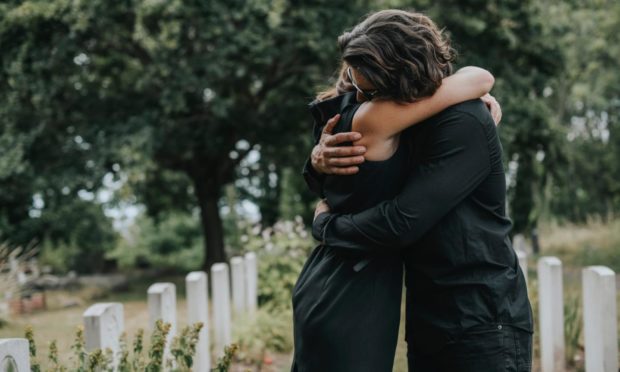Funerals are draining.
Especially so if the person whose life you are marking, is someone you have loved.
The emotion. The reality that this really is a goodbye, even if it is only a temporary reality, as people of faith believe.
The busyness in the lead up to the service. Choosing readings and music and deciding who sits where – and, these days, deciding who gets an invitation to attend and who has to be left out. Working out what to say about the deceased – all of these things take their toll on people.
And the lull immediately after the service, once everyone has gone, can be alarming. The ache and the pain, the feeling of being lost, or of not being able to settle to anything, feel as though they will never go away.
‘Tis better to have loved and lost
But, while no one would wish those feelings on anyone else, there is something fundamentally beautiful about facing that kind of grief.
How can I say that?
Because grief like that points to having had someone in your life who has left a positive mark for the better on you. Yes, there might be a few regrets in there too – none of us is perfect.
People seem to be increasingly afraid of facing the intensity of their feelings when they are bereaved
We all have our foibles, for better or for worse. But, as Alfred Lord Tennyson wrote after suddenly losing his great friend when they were still young men:
“‘Tis better to have loved and lost / Than never to have loved at all.”
It’s being so cheery that keeps me going.
But people seem to be increasingly afraid of facing the intensity of their feelings when they are bereaved.
Healing can’t be hurried
There is nothing more natural than crying and laughing – sometimes even at once.
The feelings of numbness, the sense of going mad, the anger, the lack of concentration and often the lack of sleep too. The feeling that you’re taking one step forward and 10 back; these are all perfectly natural and normal when you have lost someone dear to you.
I will say it again – there is no more beautiful tribute you can pay to another person than missing them so much it disrupts your life.
And healing cannot be hurried.
Tennyson sets his poem about the loss of his friend over three Christmases.
During the first Christmas, everyone is sad, and during the second, they enjoy the celebrations but feel guilty about enjoying them. On the third Christmas, they miss their friend but enjoy the time they have together.
The poem ends with the wedding of the poet’s sister who had been in love with the friend who had died.
It is not that the deceased is forgotten, he continues to be missed but in the missing, life goes on. The start of the journey, however, is the funeral service.
Pain must be acknowledged but not overshadow life
This is where I confess that, as someone who conducts funeral services, I find that it is not only family and friends who find the day draining. In a very different way, the person conducting the service can do too.
That is because when it comes to funerals, you only get one chance. I am acutely aware of the responsibility that goes along with conducting a funeral, and of the privilege.
In the words of a funeral service, people can find comfort and hope as well as the room to shed a tear and the freedom to laugh at times past
What I hope for the family is that the pain of the parting is acknowledged while not letting the person’s death completely overshadow their life.
It means listening to the family and getting beyond the facts to the essence of a person, which is kind of nerve-racking, but oh so worth it.
If in the words of a funeral service people can find comfort and hope as well as the room to shed a tear and the freedom to laugh at times past, then the long journey that is living with bereavement can begin.
And that is what I would hope to offer, as a Christian minister, to whoever asks me to conduct the funeral of someone they love. It is also why I find it draining.
Don’t be afraid to let people touch your heart
It is not always easy to find the right words to weave together the unique and special qualities of the very individual – individuals whose lives we remember and give thanks for.
Yet they are worth it. Our tears and our smiles bear witness to that.
So, feel on. Don’t be afraid to let people touch your heart and your life. Enjoy them.
And, if you can, dare to be the one who touches the hearts and lives of others, too.
The Very Rev Susan Brown is minister of Dornoch Cathedral and the former moderator of the General Assembly of the Church of Scotland

